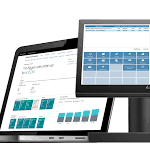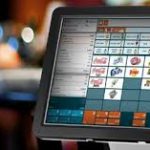Three Emerging Retail POS Technologies That Will Benefit Retailers
Three Emerging Retail POS Technologies That Will Benefit Retailers
Emerging technology trends and mobile devices are changing customer expectations. To remain competitive, small and midsize retail businesses (SMBs) need to adopt point of sale (POS) tools that address these changing needs.
According to Gartner’s Market Guide for Digital-Business-Ready POS Applications for Tier 2 Midsize Multichannel Retailers, 2016 (content is available to Gartner clients), it’s also important to consider how digital business-ready POS technologies will affect customers’ lifestyles.
For example, customers will start seeing checkout lines as a waste of time when other stores allow employees to check them out from anywhere in the store.
This article will help SMBs understand key retail trends and explain how new POS technologies can help businesses embrace mobile devices, social media and the internet of things (IoT).
Here’s what we’ll cover:
Technology #1: Mobile POS
Technology #2: Loyalty Management Systems
Technology #3: Digital Wallets
Takeaways and Next Steps
Technology #1: Mobile POS
Mobile POS systems integrate with common mobile devices like tablets and smartphones to scan products and process payments. According to Gartner’s Hype Cycle for Retail Technologies, 2016 (content is available to Gartner clients), these technologies will become mainstream in less than two years.
These systems can speed up the checkout process and help employees better interact with customers. They’re also useful for small retailers with limited floor space, as they reduce the need for a dedicated cash register.

Mobile POS systems are more suitable for low-margin items, such as groceries, than high-margin categories, such as apparel and electronic items. These products require proper bagging and de-tagging by store associates.
If a retailer has fixed checkout areas, they should make sure that the mobile POS system integrates with their main POS app.
Benefits of Mobile POS for Small Retailers
Mobile POS systems can help small businesses and retailers in a number of ways:
- Manage multiple stores and engage with customers in a better way: Mobile POS lets retailers track their sales, profits and inventory levels at different store locations using a unified dashboard on their mobile device. Some options integrate with loyalty management programs so customers can access them from their mobile device.
- Improved sales and data security: These systems allow sales associates to conduct transactions easily from any location inside the store, thus providing better customer service and making more sales. In addition, transactions carried out through a mobile POS are fully encrypted and do not store card data.
Is Mobile POS the Right Solution for You?
According to a recent survey by Boston Retail Partners, 84 percent of the surveyed retailers plan to deploy mobile POS solutions within the next three years.
Many SMB retailers who called Software Advice were also interested in buying a mobile POS in the near future. Here are some sample conversations:
- A small retailer with a single-store operation wanted a POS system that could automate their sales and track inventory efficiently. They were also interested in a mobile POS option since they visit about 40 events and shows annually.
- Another retailer with operations across four stores was unhappy with their existing POS system due to ongoing data loss. They also required better credit card processing and were interested in a mobile POS for sales during trade shows.
A mobile POS helped these retailers:
- Make sales at various trade shows and events. Retailers can meet customers directly at trade shows and conduct sales on the spot. Also, they won’t need to convince customers to visit their stores at a later time, increasing the chance of a sale.
- Check inventory levels. When a customer asks for a specific product, the associate can use their mobile device to check its availability. If it’s not in stock, they can even place an order for it.
To view the various options, check out our guide to mobile POS systems.
Technology #2: Loyalty Management Systems
These systems enable retailers to reward and interact with regular customers through a centralized system that tracks loyalty points, discounts and gift vouchers. According to Gartner’s Hype Cycle for Retail Technologies, 2016, loyalty management systems will become widespread within two to five years.
These systems can help small retailers encourage and reward customer loyalty. They can help businesses track customer interactions on social media and mobile, and provide appropriate rewards, such as cashback offers or special recognition.
Benefits of Loyalty Management Systems for Retailers
Loyalty management systems can benefit retailers in numerous ways. Here’s how:
- Increase sales: Loyalty management system capabilities help you build and maintain ongoing relationships with your most loyal customers.
- Simplify loyalty program adoption: These systems can enable customers to participate in loyalty programs using mobile devices, increasing their adoption.
- Appeal to millennials: A recent study found that millennials are twice as likely to pay a premium if they are earning loyalty rewards.
- Understand customers’ buying patterns: Retailers can track and understand their customers’ buying patterns. They can offer personalized deals to customers based on their purchase histories and buying trends.
How are Loyalty Management Systems Useful to You?
Thousands of small and midsize retailers already use loyalty management systems or seek to deploy one. Based on a recent survey by Local Commerce Monitor, nearly 24 percent of the SMBs surveyed offer some kind of loyalty program. About one-third of the respondents plan to start offering a customer loyalty program in less than a year.
Chris Luo, VP of Marketing, FiveStars, a loyalty technology company, revealed to Forbes contributor Nicole Leinbach-Reyhle that he believes most retailers that retain customers through repeated sales have better chances to enhance their overall profitability.
Luo is also of the opinion that loyalty programs enhance the overall lifetime value of customers by nearly 30 percent through retention and increase in number of visits and spend.
Retailers can use loyalty management systems in numerous ways.
For example, an SMB crafts retailer in the US that deployed a customer loyalty program had nearly 20,000 customers sign up for the program. The retailer can now identify the most valuable buyers and reach out to them to promote sales events, trade shows and new merchandise.
Technology #3: Digital Wallets
A digital wallet solution securely stores a person’s credentials, such as bank account details, identification cards, loyalty programs and payment cards. Customers can use it in a retail store using their mobile devices.
According to Gartner’s Hype Cycle for Retail Technologies, 2016, digital wallets will see mainstream adoption in two to five years.
These wallets can also store multiple payment options, and customers can keep track of their loyalty program progress and benefits.
Before making large technology investments, SMBs should determine whether there is customer demand. As the technology becomes more popular and SMBs adopt digital wallet technologies, they should explain the advantages of these systems to more reluctant users. Incentives should be considered in order to drive customer use.
The use of digital wallets can significantly increase sales for small retailers. Customers will appreciate the ease of transactions and the opportunity for customized offers.
Benefits of Digital Wallets for Retailers
Digital wallets can make the transaction process faster and more efficient. They also offer additional benefits:
- Simplified buying process: Digital wallet technology can ease the shopping experience for customers by securely storing customer’s’ payment card information on the server.
- Increased sales: Customers usually prefer a streamlined buying process and would return to a retailer if their overall transaction process is quick and easy. This gives opportunities to increase sales as existing customers would repeat their buying.
How are Digital Wallets Being Used?
An apparel retailer that operates in two stores contacted Software Advice regarding a retail system to automate their core checkout processes, manage inventory in the stores and track customers. They need the system to support payments made through Apple Wallet or Android Pay, as well as have e-commerce functionality and back office analytics.
Takeaways and Next Steps
These technologies are already in the wild, and customers will increasingly rely on their ease and convenience. To remain competitive, it’s essential for SMBs to be aware of these trends and develop a plan to adopt them within the next two to five years.
In addition, here are some next steps to keep in mind as you look for the specific system that best fits your company’s needs:
- Check out our Retail POS Software Buyer’s Guide to see what are the latest market trends in Retail software for small businesses just like yours.
- You can also read user reviews of top Retail POS software to see how other customers feel about different vendors.

 Previous Post
Previous Post Next Post
Next Post